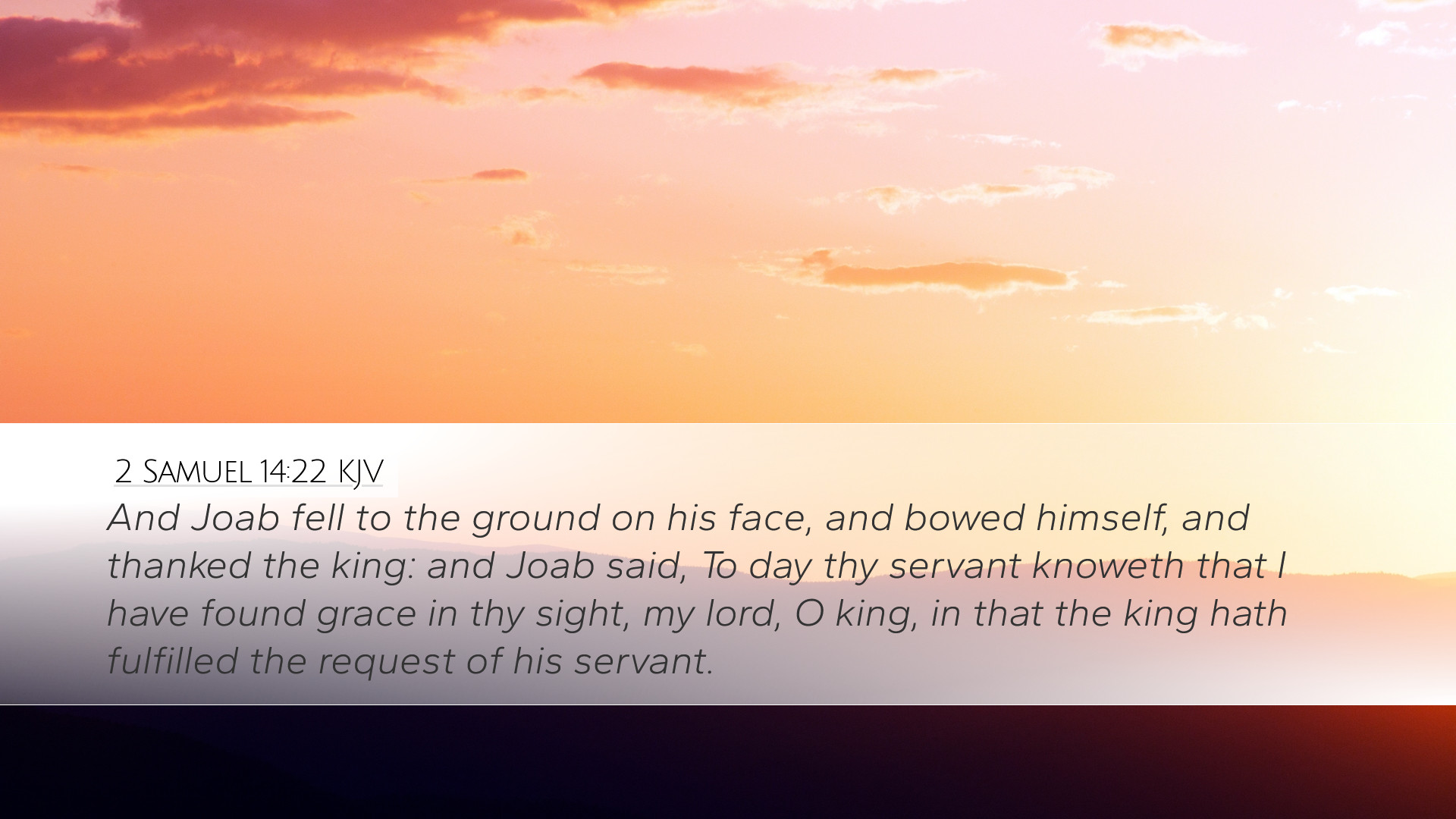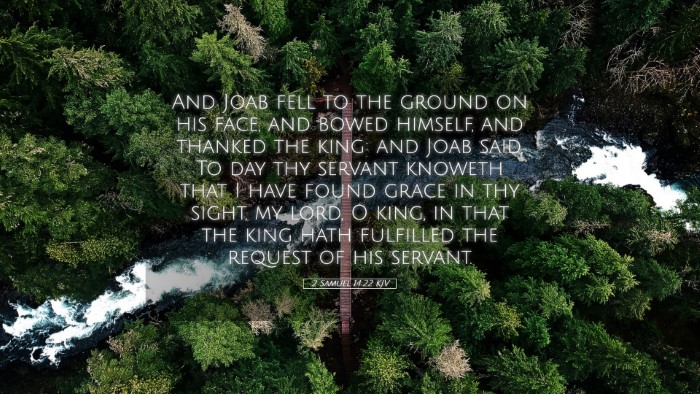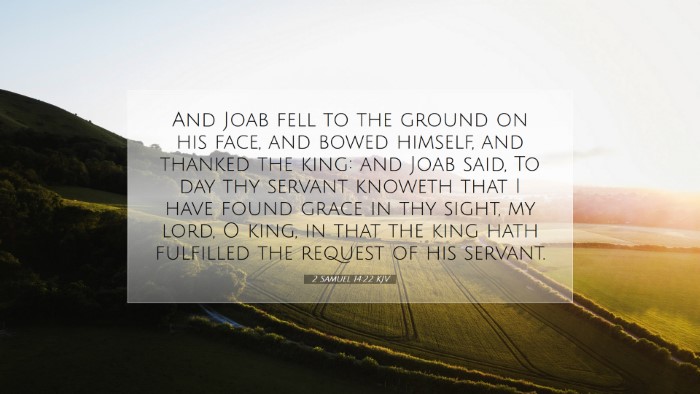Commentary on 2 Samuel 14:22
Verse Context: 2 Samuel 14:22 states, "And Joab fell to the ground on his face, and bowed himself, and thanked the king. And Joab said, Today thy servant knoweth that I have found grace in thy sight, my lord, O king, in that the king hath fulfilled the request of his servant." This verse occurs within a critical moment in the narrative of King David’s reign.
Overview
This passage presents a pivotal interaction between Joab, David, and the context of reconciliation. Joab's actions—falling on his face and expressing gratitude—reflects not only his political maneuvering but also a deep understanding of royal favor and the intricacies of leadership. The historical and theological implications of this encounter provide fertile ground for exploration.
Insights from Public Domain Commentaries
Matthew Henry's Commentary
Henry comments on Joab's character and motivations throughout this passage, emphasizing the complexity of his role as both a loyal servant and a cunning political player.
- Joab's Gratitude: Joab’s bowing and thanksgiving illustrates a recognition of David's authority. This act signifies not only gratitude but an acknowledgment of the king's discretion in a sensitive matter.
- Political Acumen: Joab's intelligence is evident in his maneuvering to promote Absalom's return, showing how political dynamics influence personal relationships within the royal court.
- Understanding Royal Favor: The concept of finding "grace" in David's eyes reflects the ancient Near Eastern practice where a servant’s standing was often subject to the king's pleasure. Joab commends David for not only fulfilling his request but doing so to the benefit of the kingdom.
Albert Barnes' Commentary
Barnes offers a historical analysis that connects the personal to the political realm, noting how David's decisions are pivotal in shaping the course of the nation.
- The Significance of Joab's Role: Joab serves as an intermediary, playing a critical role in navigating Absalom's controversial return. His actions here highlight the blend of loyalty and ambition that characterized his leadership.
- National Implications: David's fulfillment of Joab's request carries implications beyond personal relations. It signifies a moment of healing within the nation, addressing fractures caused by familial strife.
- The Nature of Grace: Barnes connects the idea of grace to the broader biblical theme of mercy. The favor Joab experiences reflects broader characteristics of divine grace seen in the governance of God through human leaders.
Adam Clarke's Commentary
Clarke delves into the textual elements and broader implications of this exchange, analyzing its theological significance in light of scripture.
- Symbolism of Bowing: The act of bowing symbolizes submission, signaling Joab’s recognition of David’s authority—a theme echoed throughout the biblical narrative regarding leadership.
- Divine Favor: Clarke articulates that Joab's sense of having found grace is indicative of God’s hand in David’s rule. The fulfilling of Joab’s request can be seen as divine providence working through the king's decisions.
- Foreshadowing Events: The reconciliation hinted at in this passage foreshadows larger conflicts and resolutions that will impact the trajectory of David’s reign and the nation of Israel. Clarke emphasizes the interconnected nature of personal decisions and national destiny.
Theological Reflections
This verse, while short, encapsulates various theological themes vital for understanding the character of God in governance, mercy, and the complexities of human relationships. The implications stretch from individual interactions to the broader narrative of Israel's history, reconciling familial relationships against the backdrop of national responsibility.
Key Themes
- Grace and Favor: The concept of finding grace in the eyes of a leader highlights the intersection of divine favor in earthly leadership. Joab’s acknowledgment of this grace speaks volumes of his understanding of power dynamics.
- Leadership and Influence: David’s role as king forever intertwines with Joab’s influence, suggesting a model of how leaders should respond to their advisors, weaving together wisdom, discernment, and grace.
- Divine Providence: The events surrounding this verse serve to remind readers that God orchestrates the affairs of men, often through unexpected means and individuals, bringing about reconciliation and healing amid turmoil.
Conclusion
2 Samuel 14:22, through the lens of public domain commentaries, provides a profound insight into the dynamics of leadership, loyalty, and grace. For pastors, scholars, and theologians, this verse reminds us of the complexities surrounding decisions made in leadership roles, the moral implications of favor, and the overarching narrative of God’s providence through the lives of biblical figures.


